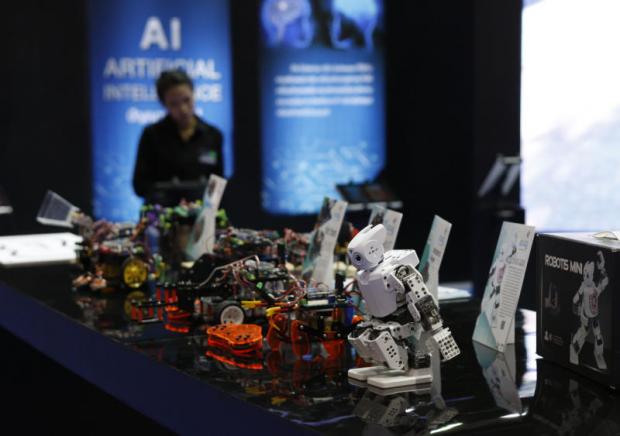
Robotics in Thailand is thriving on rising demand in Asia and around the globe as automation helps reduce manufacturing costs and the space needed at factories, says a Japanese electronics executive.
Demand for robotics in Thailand is surging, especially in the automotive industry, said Junji Tsuda, chairman of the board at Yaskawa Electric Corporation, a maker of servos, motion controllers, AC motor drives, switches and industrial robots.
Robotics now represents 25% of Japan's automotive manufacturing output in Thailand.
Mr Tsuda said he expects the local automotive industry to rely more heavily on industrial robotics as the government promotes next-generation cars.
Industrial robots can be used not only in potentially dangerous situations, but also in other fields such as biomedical services, he said.
The World Robotics 2017 report, conducted by the International Federation of Robots, viewed Thailand as a growing market for industrial robots in Asia, with sales projected at 3,000 units in 2017, 3,500 in 2018, 4,000 in 2019 and 5,000 in 2020, up from 2,646 in 2016.
Robot sales worldwide were expected to stay at 346,800 units in 2017, 379,250 units in 2018, 433,900 units in 2019 and 520,900 units in 2020, up from 294,312 units in 2016.
Mr Tsuda said Yaskawa Electric now makes 3,500 units of industrial robots a month from three factories in Japan and one in China.
Yaskawa Electric established Yaskawa Electric Thailand Co in 2004 with 81 employees to sell industrial robotics, robotics for painting and other purposes, systems sales and engineering, and mechatronics sales.
The company is one of several in Japan to have been approached by the Thai government to invest in building an industrial robot factory in the Eastern Economic Corridor (EEC).
Robotics is among the 10 targeted industries that can enjoy the highest investment privileges if the factory is located in a special economic zone such as the EEC.
The cabinet last August approved a robotics development plan as the state pushes to enhance a 200-billion-baht investment scheme for the industry over the next five years.
The cabinet also approved a slew of measures to support the development of robotics and other targeted industries to maintain the Thailand 4.0 policy.
The measures are aimed at encouraging the manufacturing and service sectors to increase productivity through the use of robotics and automation systems.
Participating firms are eligible to enjoy privileges from the Board of Investment (BoI), including a 50% reduction in corporate tax for three years, as long as the companies keep working in the related high-tech sectors. The Finance Ministry also lets participating firms deduct 300% of corporate tax for R&D expenditure.
The Industry Ministry supports the provision of soft loans for small and medium-sized enterprises looking to improve their production processes through related systems.
The government is also committed to further supporting the development of so-called system integrators (SIs).
The state aims to increase the number of SIs to 1,400 in the next five years, up from 200.
Apart from enjoying BoI privileges, the Finance Ministry will waive import duties for parts and equipment to manufacture robotics and automation systems.
The government seeks to help companies establish centres of robotics excellence with the participation of eight selected educational institutions.
Under those measures, the government wants to generate investment of 12 billion baht in the first year, reaching 200 billion in the next five years.
The government projects half of those in the manufacturing and services sectors will use robotics in five years' time, up from 30% at present.
The government also plans to develop 50 prototypes for robotics and automation systems.
Mr Uttama said the development plan is expected to reduce the import of robotics and automation systems by 132 billion baht annually.
Secretary-general Duangjai Asawachintachit said last year that private investment value in robotics and automation was expected to grow 50% in 2018.